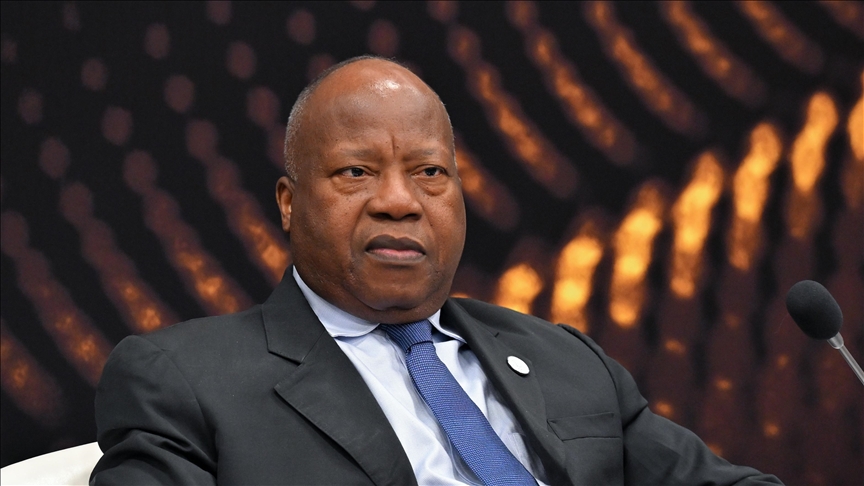ANTALYA, Türkiye
If global powers and regional mechanisms work together, it could create a space for dialogue among armed groups on the border, representing a significant step for regional development, said the Secretary-General of the International Conference on the Great Lakes Region.
Joao Samuel Caholo pointed out the misuse of veto power by major countries in the UN Security Council, allowing them to invade smaller countries at the Antalya Diplomacy Forum.
The panel titled “What Should Be the Role of Regional Mechanisms?” at the Antalya Diplomacy Forum focused on regional ownership and cooperation in a digitally connected yet increasingly fragmented world.
Moderated by TRT World correspondent Melinda Nucifora, the panel featured the participation of PornchaiDanvivathana, Secretary-General of the Asia Cooperation Dialogue (ACD); Constantin-Mihail Grigorie, Director of the Regional Arms Control Verification and Implementation Assistance Centre (RACVIAC); Joao Samuel Caholo, Secretary-General of the International Conference on the Great Lakes Region (ICGLR); and Bjorn Berge, Deputy Secretary-General of the Council of Europe.
Caholo stated that the ICGLR, which brings together 12 African countries with critical natural resources, employs political and economic tools to achieve peace and stability in the region.
Caholo underlined that the key to preventing wars and conflicts is implementing decisions unanimously taken by regional mechanisms
“Humanity should never allow what we have seen in Gaza and Ukraine to happen,” he said.
Regional Development
Pornchai Danvivathana of the ACD mentioned conflicts among the 35 members of the ACD from Asia and Europe but highlighted that the Union builds solutions on agreed-upon issues rather than disputes.
Stressing the interdependence of international actors and the impossibility of anyone acting alone, especially in cross-border issues, Danvivathana underscored the contribution of regional mechanisms to international operations.
Danvivathana suggested that states could advance regional development by focusing on their national economic advantages in areas where they cannot compete globally.
‘If you want peace, prepare for war’
Constantin-Mihail Grigorie, Director of RACVIAC, shared that despite past disagreements and current disputes among the nine Southeast European countries under RACVIAC, the regional organization has facilitated security dialogue.
Grigorie pointed out that some member states still do not recognize Kosovo, but he highlighted RACVIAC members’ unanimous decision to invite Kosovo to meetings, excluding military topics.
Highlighting the importance of diplomacy in international conflicts like the Ukraine-Russia War, Grigorie quoted the Roman saying: “If you want peace, prepare for war.”
He suggested that in today’s world, we can observe this and need to adapt by preparing for peace.
Deputy Secretary-General of the Council of Europe Bjorn Berge mentioned that the Council focuses on conflicts in the continent rather than the Israel-Palestine issue.
He informed about the collaboration of Ukraine, the EU, and G7 countries to create a functional recording mechanism for human rights violations in the Ukraine-Russia War, with the center located in The Hague, Netherlands.
Berge noted the potential constructive role of the US in resolving certain conflicts.
He highlighted the need to implement Ukrainian President Volodymyr Zelenskyy’s peace plan to end the war with Russia.
Pointing out that the UN Security Council was established to preserve global peace after World War II but has repeatedly failed, Berge argued that a more effective mechanism is needed to address global wars and conflicts.

